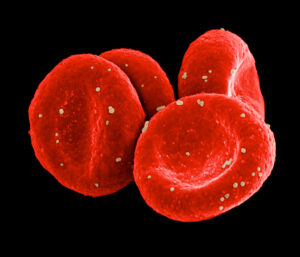Red blood cells (RBCs) may be stored for up to 42 days, but over time storage lesions also develop. These storage lesions affect the efficiency of oxygen unloading from RBCs into the tissues, which may in turn impact the efficacy of transfusions. Recent real-world data have linked longer storage times of RBCs to increased mortality. Paradoxically, RBCs stored under hypoxic conditions without oxygen have been shown to preserve oxygen unloading and slow biochemical degradation. By using a specially designed microfluidic chamber to store RBCs in hypoxic conditions, researchers compared the kinetics of oxygen unloading from RBCs stored in standard and hypoxic conditions over 49 days. The oxygen-handling properties of RBCs stored under hypoxic conditions were improved through 35 days of storage, but by day 49, no differences were observed compared to standard storage conditions. Based on proteomic analyses, the benefits of hypoxic storage were unrelated to post-translational modifications of hemoglobin or other proteins implicated in gas handling. Further research is needed to identify the specific metabolites involved in preserving oxygen unloading and the ideal storage conditions for RBCs.
Reference:

